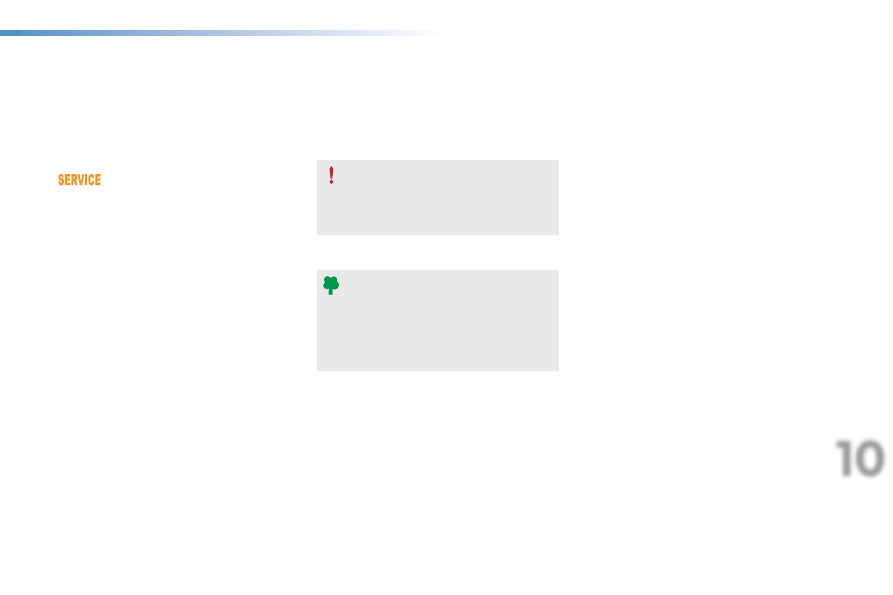Peugeot 2008 (2016 year). Instruction - part 16

239
10
Checks
2008_en_Chap10_verifications_ed01-2016
Avoid prolonged contact of used oil or
fluids with the skin.
Most of these fluids are harmful to
health or indeed very corrosive.
Do not discard used oil or fluids into
sewers or onto the ground.
Take used oil to a PEUGEOT dealer or
a qualified workshop (France) or to an
authorised waste disposal site.
Used products
Topping-up
This additive must be topped-up by a
PEUGEOT dealer or a qualified workshop
without delay.
Diesel additive
A low additive level is indicated by
illumination of the service warning
lamp, accompanied by an audible warning and
a message in the screen (if a display screen is
fitted).